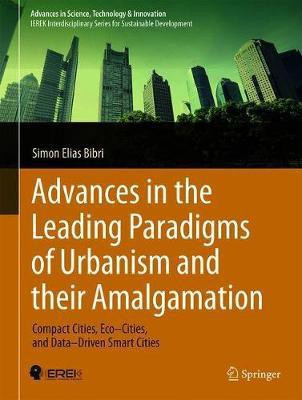Advances in the Leading Paradigms of Urbanism and their Amalgamation(English, Hardcover, Bibri Simon Elias)
Quick Overview
Product Price Comparison
This book explores the recent advances in the leading paradigms of urbanism, namely compact cities, eco-cities, and data-driven smart cities, and the evolving approach to their amalgamation under the umbrella term of smart sustainable cities. It addresses these advances by investigating how and to what extent the strategies of compact cities and eco-cities and their merger have been enhanced and strengthened through new planning and development practices, and are being supported and leveraged by the applied solutions pertaining to data-driven smart cities. The ultimate goal is to advance sustainability and harness its synergistic effects on multiple scales. This entails developing and implementing more effective approaches to the balanced integration of the three dimensions of sustainability, as well as to producing combined effects of the strategies and solutions of the prevailing approaches to urbanism that are greater than the sum of their separate effects in terms of the tripartite value of sustainability. Sustainable urban development is today seen as one of the keys towards unlocking the quest for a sustainable world. And the big data revolution is set to erupt in cities throughout the world, heralding an era where instrumentation, datafication, and computation are increasingly pervading the very fabric of cities and the spaces we live in thanks to the IoT. Big data and the IoT technologies are seen as powerful forces that have tremendous potential for advancing urban sustainability. Indeed, they are instigating a massive change in the way sustainable cities can tackle the kind of special conundrums, wicked problems, and significant challenges they inherently embody as complex systems. They offer a multitudinous array of innovative solutions and sophisticated approaches informed by groundbreaking research and data-driven science. As such, they are becoming essential to the functioning of sustainable cities. Besides, yet knowing to what extent we aremaking progress towards sustainable cities is problematic, adding to the fragmented, conflicting picture that arises of change on the ground in the face of the escalating rate and scale of urbanization and in the light of emerging ICT and its novel applications. In a nutshell, new circumstances require new responses. This timely and multifaceted book is intended for a wide readership. As such, it will appeal to researchers, academics, urban scientists, urbanists, planners, designers, policy-makers, and futurists, as well as all readers interested in sustainable cities and their ongoing and future data-driven transformation.


